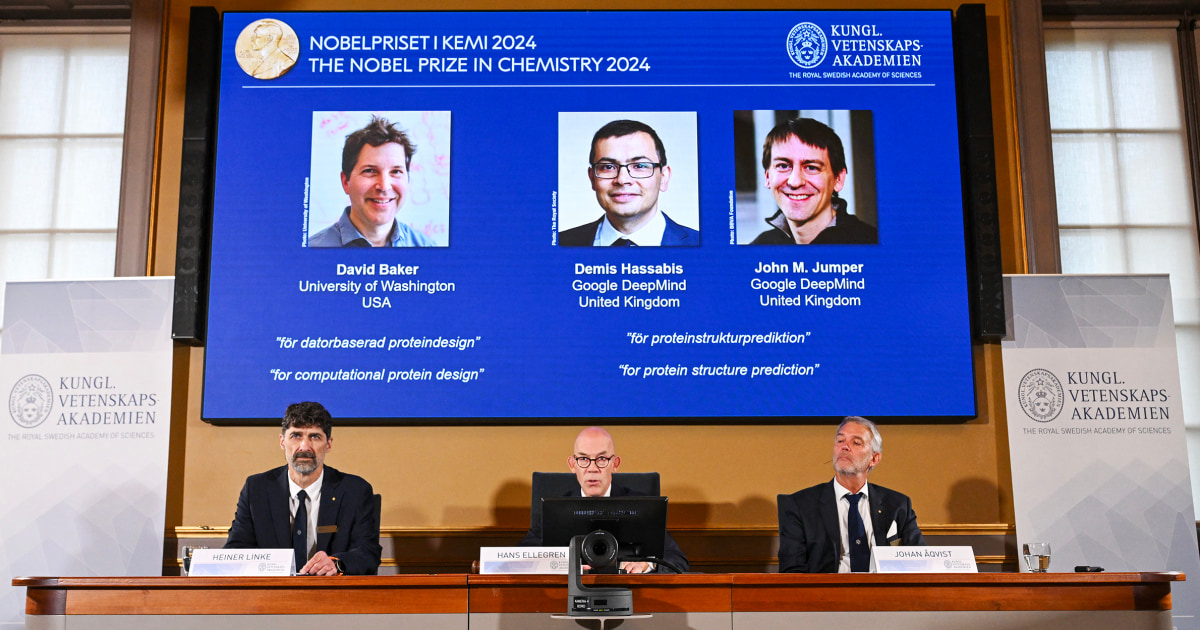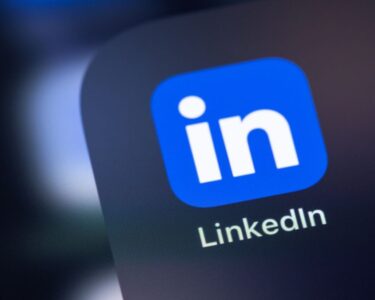Two American scientists and the British co-founder of Google’s artificial-intelligence subsidiary DeepMind won the 2024 Nobel Prize in Chemistry for work on the structure of proteins, the award body said Wednesday.
David Baker, 62, was awarded half of the 11 million Swedish krona ($1.1 million) prize for his work on “computational protein design” by the Royal Swedish Academy of Sciences, which hands out the award that is widely regarded as the scientific world’s most prestigious.
The other half was shared by Demis Hassabis, 48, and his DeepMind colleague John Jumper. Both work at the AI company where the London-born Hassabis is chief executive for the its protein prediction software.
The third award to be handed out every year, the chemistry prize follows those for medicine and physics announced earlier this week.
Proteins play vital roles in all living organisms and consist of amino acids, which are often described as the building blocks of life. They make up bone, skin, hair and tissue, and they read, copy and repair our DNA.
“To understand how life works, we first need to understand the shape of proteins,” Nobel Chemistry committee chair, Professor Dr. Heiner Linke, said at a news conference. “For several decades, this was considered impossible. Four years ago, in 2020, Demis Hassabis and John Jumper managed to crack the code.”
“Another dream of scientists has been to build new proteins, to learn how to use nature’s multitool for our own purposes. This is the problem that David Baker solved,” added Linke, who is also a professor of nanophysics at Lund University, Sweden.
Baker’s work, he added, has succeeded in “opening endless possibilities for the greatest benefit to humankind.”
It was in 2003 that Baker, a University of Washington biochemist, was able to design a new protein from scratch. Since then, his research group has created several novel proteins, including ones that can be used as pharmaceuticals, vaccines, nanomaterials and tiny sensors.
It had taken decades for scientists to map just a fraction of all known proteins before 2020, when Hassabis and Jumper first presented their AlphaFold2 AI protein-prediction model.
Since then, their technology has been able to predict the structure of virtually all known proteins. Among its vast range of scientific applications, the more than 2 million people who have used AlphaFold2 have been able to better understand antibiotic resistance and create images of enzymes that can break down plastic — an application that could have vast consequences for the environment.
“It’s an incredible honor, it’s the big one really,” said Demis Hassabis in an interview with the Nobel Prize website. “I had a whole day of normal work ahead of me but I guess all those plans will have to change now.”
When asked about the broader reach of AI, he added that he had “always thought if we could build AI in the right way it could be the ultimate tool to help scientists explore the world around us and I hope Alphafold is a first example of that.”
John Jumper shared the news of his award on a video call with jubilant friends and colleagues. “Glad you guys are all caught up now,” he said.
The Nobel Prize also posted that David Baker turned down “100 calls” while speaking with its representatives.
The Nobel prizes were established in the will of dynamite inventor and wealthy businessman Alfred Nobel. Chemistry may not always be the most headline-grabbing of the prizes, but past recipients include scientific greats such as radioactivity pioneers Ernest Rutherford and Marie Curie.
Last year’s chemistry award went to Moungi Bawendi, Louis Brus and Aleksey Ekimov for their discovery of tiny clusters of atoms known as quantum dots, widely used today to create colors in flat screens, light emitting diode (LED) lamps and devices that help surgeons see blood vessels in tumors.
Alongside the cash prize, the winners will be presented a medal by the Swedish king on Dec. 10, followed by a lavish banquet in Stockholm city hall.






